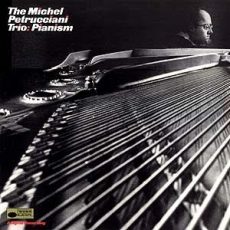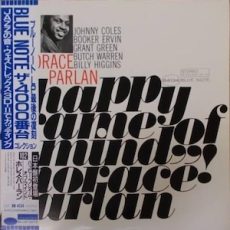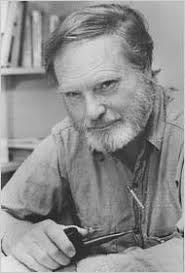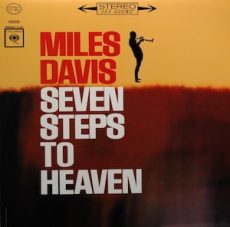
Requisites
Pianism ~ The Michel Petrucciani Trio | By Eddie Carter
This morning’s record from the library is an overlooked gem by French pianist Michel Petrucciani. Pianism (Blue Note BT-85124) is his twelfth release as a leader, and it marks his debut with the prestigious label. Recorded just days before his twenty-third birthday, the album captures the trio’s energy they exhibited during a six-week, thirty-two concert tour from Munich to Martinique. Michel Petrucciani, on the Steinway grand piano, is joined by bandmates Palle Danielsson on bass and Eliot Zigmund on drums. Petrucciani composed four of the album’s tunes, and my copy is the 1986 U.S. Stereo release.
Side One of Pianism opens with The Prayer, a poignant tune that chronicles Michel’s and his sweetheart Eugenia’s transition from a lively house with friends to a single home owned by Eliot Zigmund that they lovingly maintained. The track commences with a mesmerizing solo introduction that seamlessly evolves into the trio’s comforting theme. Michel crafts a tapestry of hauntingly sensitive and lyrical notes. Palle follows with a delicately tender interpretation before they reunite to conclude the song softly. Our Tune, a composition that holds a special place in Michel’s heart, picks up the tempo for the threesome’s upbeat melody. He reveals his love and affection for Eugenia in the first solo. Palle takes over for an assertive interpretation. Eliot shares the finale with the pianist until the agile reprise dissolves.
Face’s Face is dedicated to the couple’s pure-blooded Afghan hound. The pianist’s introduction is playful, leading to the trio’s aggressive theme. Michel sets the tone with a brisk performance. Palle fuels the second reading with a dazzling display; then, Michel and Eliot exchange riffs preceding the theme’s restatement and close. The first of two standards, Night and Day by Cole Porter, gets Side Two underway with a breathtaking introduction by Michel that grows into the ensemble’s lively melody. Michel takes off like a rocket shooting skyward on the opening statement. Palle keeps things moving in the second presentation. Eliot gives his drums a vigorous workout before the spotlight returns to Michel for the climax.
Here’s That Rainy Day by Jimmy Van Heusen and Johnny Burke opens with a gorgeous introduction by Michel. Palle and Eliot join him for a relaxed, easy-going theme. Michel starts the proceedings with a beautifully tender interpretation. Palle comes in next for a very pretty performance while Eliot cushions the gentle groove for Michel’s return to take the song out softly. The album’s final track is a catchy tune titled Regina. It’s named for the Brazilian singer, Elis Regina and the trio’s introduction sets the scene for an infectious, danceable melody. Michel opens the solos with a sincerely beautiful performance. Palle feeds off his energy with a compelling reading that flows to the pianist’s return for a few last thoughts preceding the theme’s restatement and fade out.
Mike Berniker produced Pianism, and Mike Moran was the recording engineer of this digital release. The album’s sound quality is outstanding, with a stunning soundstage that really shines on a quality audio system with excellent fidelity. The record is also quiet until the music begins. Despite suffering from a genetic spinal disease that caused brittle bones and resulted in his inability to grow tall, Michel Petrucciani was one of the most accomplished pianists in jazz. He performed live over one hundred times twice in two years despite being in constant pain, a testament to his passion and dedication to his craft. In addition to recording twenty-five albums as a leader, Petrucciani also recorded with Steve Grossman, Charles Lloyd, Joe Lovano, and The Manhattan Project.
He was interviewed regularly and appeared on television quite a few times. Michel died from a pulmonary infection on January 6, 1999, shortly after his thirty-sixth birthday. But his music continues to inspire and captivate jazz fans and is an absolute joy to listen to. If you’re in the mood for a musical journey, I wholeheartedly recommend exploring Pianism by The Michel Petrucciani Trio on your next record shopping trip. It’s not just a terrific addition to your jazz library but also a perfect gateway to his discography that can be enjoyed endlessly!
~ Here’s That Rainy Day, Night and Day – Source: JazzStandards.com
© 2024 by Edward Thomas Carter
More Posts: choice,classic,collectible,collector,history,instrumental,jazz,music,piano

Jazz Poems
COLTRANE, SYEEDA’S SONG FLUTE
For M & P.R.
When I came across it on the
piano it reminded me of her,
because it sounded like a
happy, child’s song.
COLTRANE
To Marilyn, to Peter,
playing , making things: the walls, the stairs,
the attics, bright nests in nests;
the slow, light, grave unstitching of lies,
opening, stinking, letting in air
you bear yourselves in, become your own mother
and father
your own child.
You lying closer.
You going along. Days.
The strobe-lit wheel stops dead
once, twice in a life: old-fashioned rays:
and then all the rest of the time pulls blur,
only you remember it more, playing.
Listening here in the late quiet you can think
great things of us all, I think we will all, Coltrane,
meet speechless and easy in Heaven, our names
known and forgotten, all dearest, all come
giant-stepping
out into some wide, light, merciful mind.
John
Coltrane, 40, gone
right through the floorboards,
up to the shins, up to the eyes,
closed over,
Syeeda’s happy, child’s song
left up here, playing.
JEAN VALENTINEfrom Jazz Poems ~ Selected and Edited by Kevin Young
More Posts: book,classic,collectible,history,jazz,library,poet

Requisites
Happy Frame of Mind ~ Horace Parlan | By Eddie Carter
Horace Parlan has always been one of my favorite pianists, and this morning’s record from the library is a 1963 recording session that remained shelved until 1976. Happy Frame of Mind (Blue Note BST 84134) is a sextet date that was initially released as a two-record set by Booker Ervin. It finally hit the stores a decade later with its original cover and catalog number. The supporting cast is a stellar one: Johnny Coles on trumpet, Booker Ervin on tenor sax, Grant Green on guitar, Butch Warren on bass, and Billy Higgins on drums. My copy is the 1991 Toshiba EMI Japanese Stereo reissue sharing the original catalog number.
Side One opens with Home Is Africa by Ronnie Boykins. Butch and Billy get things started ahead of the ensemble’s haunting melody. Johnny is up first with a relaxing reading; then Booker gives a gorgeous solo. Grant makes an effective contribution next. Horace gives the song’s most inventive improvisation before the sextet’s closing chorus ends as it begins. A Tune For Richard by Booker Ervin gets busy with Billy’s lively introduction to the ensemble’s brisk melody. Johnny leads the charge, then Booker takes flight next. Grant delivers the third message effectively, and Horace ends with a spirited interpretation preceding the theme’s restatement and close.
Back From The Gig by Horace Parlan is the pianist’s reference to returning home from a particularly difficult gig, and the sextet begins with an easygoing melody. Horace’s opening solo flows with feeling, then Grant builds a perfect melodic line in the following reading. Booker follows with a statement that’s warm and heartfelt, and Butch takes over for a tender finale leading back to the climax. Dexi by Johnny Coles begins Side Two at a brisk clip with a quick melody into Johnny’s opening solo that sets the table. Booker is given considerable space for an impressive statement next. Horace follows with a soulful interpretation, and Grant takes a quick turn, preceding the quick reprise and fadeout.
Kucheza Blues by Randy Weston maintains an upbeat pace with the trio’s introduction to the front line’s jaunty theme. Horace leads the way with a refreshing solo. Booker follows, fueling the second statement with enthusiastic choruses. Johnny sinks his teeth into the third reading, and Butch walks swiftly toward the closing chorus and fade out. Horace’s Happy Frame of Mind is a happy rocker that the sextet has fun in the melody. Grant takes the lead and beautifully executes the first solo. Horace follows with a thoroughly enjoyable reading. Booker improvises freely in the third spot; then Johnny shares the finale with Billy before the sextet returns to take it out.
Alfred Lion produced the initial session, and Rudy Van Gelder was the recording engineer. The reissue’s sound quality is superb, with a vivid soundstage that brings the musicians to your listening room with excellent fidelity. Happy Frame of Mind is an overlooked jewel in Horace Parlan’s discography. If you’re a fan of Horace Parlan and don’t own the two-record set, Back From The Gig, I invite you to seek out Happy Frame of Mind on your next record shopping trip. It’s a wonderful album with a stellar supporting cast that I hope more jazz fans will discover!
~ Back From The Gig (The Blue Note Reissue Series BN-LA488-H2) – Source: Discogs.com © 2024 by Edward Thomas CarterMore Posts: choice,classic,collectible,collector,history,instrumental,jazz,music,piano

Jazz Poems
BILLIE HOLIDAY
Here lies a lady. Day was her double pain,
Pride and compassion equally gone wrong.
At night she sang, “Do you conceive my song?”
And answered in her torn voice, “Don’t explain.”
HAYDEN CARRUTHfrom Jazz Poems ~ Selected and Edited by Kevin Young
More Posts: book,classic,collectible,history,jazz,library,poet

Requisites
Seven Steps To Heaven ~ Miles Davis | By Eddie Carter
This morning’s album from the library is a hidden gem in Miles Davis’s extensive discography. In 1962, his quintet was undergoing a significant transition. Hank Mobley departed to pursue a solo career, and the musical trio of Kelly, Chambers, and Cobb would soon become one of the most celebrated in jazz. Seven Steps To Heaven (Columbia CL 2051/CS 8851) is a product of two sessions by the trumpeter at Columbia’s New York and Los Angeles studios. His supporting cast includes George Coleman (tracks: A2, B1, B3) on tenor sax, Victor Feldman (A1, A3, B2), Herbie Hancock (A2, B1, B3) on piano, Ron Carter on bass, Frank Butler (A1, A3, B2), and Anthony Williams (A2, B1, B3) on drums. My copy is the original 1963 U.S. Stereo release.
Side One starts with Basin Street Blues by Spencer Williams. The first of three quartet performances opens with the foursome expressing the song’s softer emotions in the melody, featuring Miles using a mute. He sustains the gentle mood in the first solo before picking up the pace for a delightful conclusion. Victor gets into something good in a delightful reading ahead of the quartet, easing back into the theme. Seven Steps To Heaven by Miles Davis and Victor Feldman is off to the races from the rhythm section’s introduction to the quintet’s quick melody. Miles kicks off the solos, wailing, and then George swings vigorously into the second statement. Herbie takes an exhilarating turn next, preceding the reprise and close.
I Fall In Love Too Easily by Jule Styne and Sammy Cahn first appeared in the 1945 musical comedy Anchors Aweigh. Miles is back on the muted trumpet for the quartet’s tenderness and warmth during the melody. The leader’s opening statement is reflective yet quite beautiful. Victor expresses great care and thoughtfulness in the second solo until Miles returns to deliver a gorgeous climax. So Near, So Far by Tony Crombie and Benny Green kicks off the second side with the quintet’s medium theme. Miles gets things started on the open horn. George picks up the baton and really shines in the following presentation. Herbie has the final word and delivers a terrific performance into the ensemble regrouping for the closing chorus.
Baby, Won’t You Please Come Home by Charles Warfield and Clarence Williams is a blues song from 1919 that brings Miles back on the muted trumpet. Victor opens with a solo introduction ahead of the quartet’s touching melody. The trumpeter opens with a delicately tender interpretation; then Victor brings the solos to a close into the foursome’s thoughtfully graceful ending. Victor Feldman’s Joshua turns the temperature up one final time. Miles’s fingers snap the quintet to attention for the song’s lively theme. Miles steps up first in the spotlight with an enthusiastic performance. George takes over to deliver long, flowing lines that are equally satisfying. Herbie wraps things up with a festive finale that hits a perfect groove into the quintet’s reprise and completion.
Teo Macero produced Seven Steps To Heaven, although it’s unknown who recorded both sessions. It doesn’t matter, however, because this is a terrific recording with a crisp, detailed soundstage that sparkles. It is the first time George, Herbie, Ron, and Tony have recorded with Miles. George wouldn’t make another studio album with Miles, but appears on three live albums with this group, ‘Four’ & More, Miles Davis In Europe and My Funny Valentine. Hancock, Carter, and Williams formed the nucleus of Miles’s second great quintet and would remain with him for the next five years.
Victor turned down Miles’s invitation to join his quintet because he was a successful West Coast session musician, so he and Frank remained in California. If you’re in the mood for an excellent album of ballads and uptempo tunes and are a fan of Miles Davis from the early sixties, I highly recommend checking out Seven Steps To Heaven. It’s a stellar album that not only gives a glimpse into what was to come from The Second Great Miles Davis Quintet but also stands on its own as a title worthy of any jazz lover’s library. You’ll find it a rewarding addition to your collection, and I’m confident it will bring you hours of musical enjoyment.
~ ‘Four’ & More (Columbia CL 2453/CS 9253), Miles Davis In Europe (Columbia CL 2183/CS 8983), My Funny Valentine (Columbia CL 2306/CS 9106) – Source: Discogs.com ~ Baby, Won’t You Please Come Home, Basin Street Blues, I Fall In Love Too Easily – Source: JazzStandards.com © 2024 by Edward Thomas CarterMore Posts: choice,classic,collectible,collector,history,instrumental,jazz,music,trumpet



